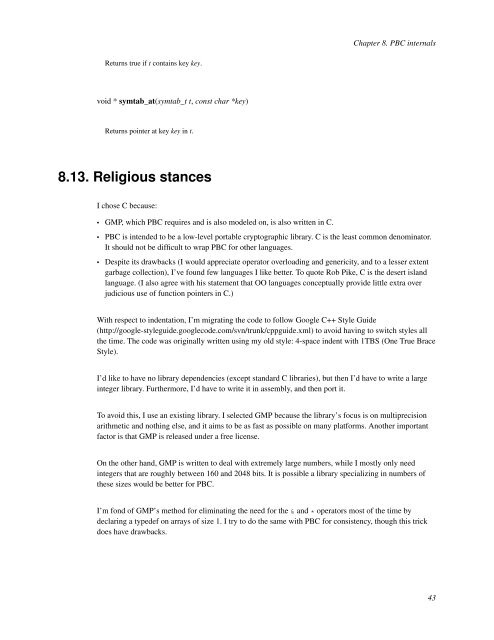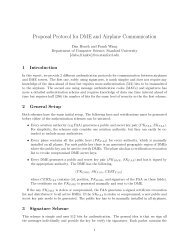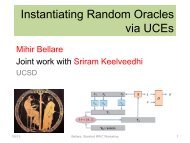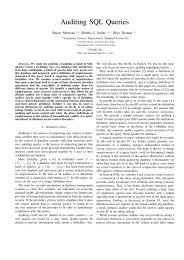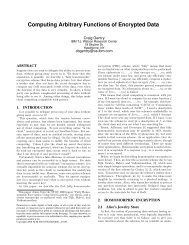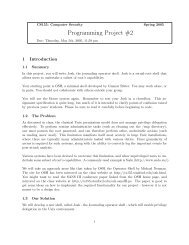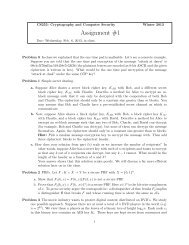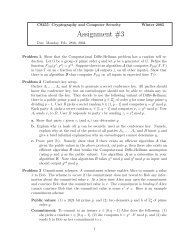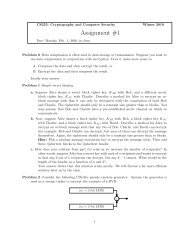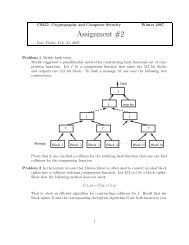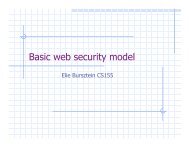PBC Library Manual 0.5.11 - Stanford Crypto Group
PBC Library Manual 0.5.11 - Stanford Crypto Group
PBC Library Manual 0.5.11 - Stanford Crypto Group
You also want an ePaper? Increase the reach of your titles
YUMPU automatically turns print PDFs into web optimized ePapers that Google loves.
Returns true if t contains key key.<br />
void * symtab_at(symtab_t t, const char *key)<br />
Returns pointer at key key in t.<br />
8.13. Religious stances<br />
I chose C because:<br />
• GMP, which <strong>PBC</strong> requires and is also modeled on, is also written in C.<br />
Chapter 8. <strong>PBC</strong> internals<br />
• <strong>PBC</strong> is intended to be a low-level portable cryptographic library. C is the least common denominator.<br />
It should not be difficult to wrap <strong>PBC</strong> for other languages.<br />
• Despite its drawbacks (I would appreciate operator overloading and genericity, and to a lesser extent<br />
garbage collection), I’ve found few languages I like better. To quote Rob Pike, C is the desert island<br />
language. (I also agree with his statement that OO languages conceptually provide little extra over<br />
judicious use of function pointers in C.)<br />
With respect to indentation, I’m migrating the code to follow Google C++ Style Guide<br />
(http://google-styleguide.googlecode.com/svn/trunk/cppguide.xml) to avoid having to switch styles all<br />
the time. The code was originally written using my old style: 4-space indent with 1TBS (One True Brace<br />
Style).<br />
I’d like to have no library dependencies (except standard C libraries), but then I’d have to write a large<br />
integer library. Furthermore, I’d have to write it in assembly, and then port it.<br />
To avoid this, I use an existing library. I selected GMP because the library’s focus is on multiprecision<br />
arithmetic and nothing else, and it aims to be as fast as possible on many platforms. Another important<br />
factor is that GMP is released under a free license.<br />
On the other hand, GMP is written to deal with extremely large numbers, while I mostly only need<br />
integers that are roughly between 160 and 2048 bits. It is possible a library specializing in numbers of<br />
these sizes would be better for <strong>PBC</strong>.<br />
I’m fond of GMP’s method for eliminating the need for the & and * operators most of the time by<br />
declaring a typedef on arrays of size 1. I try to do the same with <strong>PBC</strong> for consistency, though this trick<br />
does have drawbacks.<br />
43


